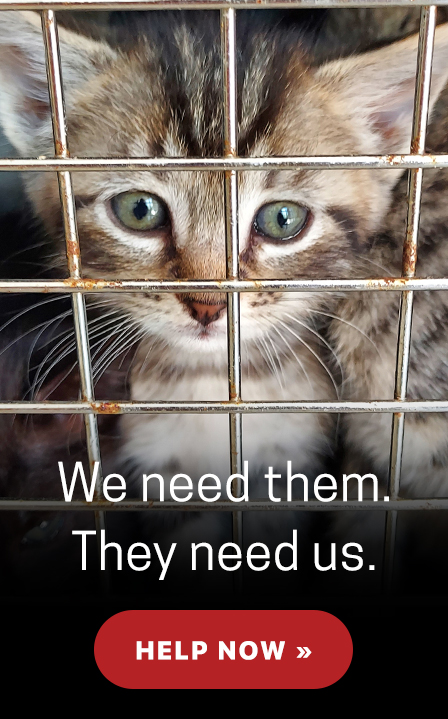November 8, 2017 — It’s been 396 years since the first Thanksgiving. The menu was a bit different back then—canned cranberry sauce didn’t exist, potatoes weren’t part of the North American diet yet, and early settlers ate eel and shellfish. But a bird — turkey or other fowl — was still the centerpiece.
Today most people don’t worry about whether they’ll make it through the winter with enough food. We have a bountiful and diverse harvest year-round thanks to the hard work of farmers who raise turkeys and other animals for food.
This year, we can show our thanks by supporting the humane treatment of farm animals.
Americans are increasingly removed from food production. Just two percent of the country today has ties to the farm, compared to one-third of America a century ago. At the same time, practices and technology have changed agriculture dramatically. The image of Old MacDonald’s farm is just a distant memory for most of us.
That’s not a bad thing, as nostalgic as we might be for the image of the good old days. Today we produce more food on less land more safely than ever before. Farmers are constantly innovating to do more with less and lower their environmental impact while feeding a growing country and growing world. For instance, modern technology has enabled farmers to use 74 percent less land to grow corn than they would need if they used 1950s technology.
But the distance has also fostered curiosity and concern. Various news reports and Internet videos have painted agriculture in a negative light, particularly when it concerns animals. As a result, more and more consumers want to know where their food comes from and they want confirmation that best practices are used. We also have a general skepticism of institutions these days. A 2015 Gallup poll found fewer than nine percent of Americans trust corporations a “great deal,” and Harvard found that the vast majority of millennials distrust the media, Wall Street, and the federal government.
Third-party humane certification can dispel fear and distrust and provide certainty for consumers of meat, dairy, and eggs. Busy families don’t have time to personally visit every farm they buy eggs or bacon from, any more than they have time to visit clothing factories to ensure working conditions are appropriate.
That’s why animal advocates have set up humane labeling programs. My organization, American Humane, the oldest national animal welfare group in the United States, runs the largest such certification program, called American Humane Certified. Our science-based standards were developed by top animal welfare experts and are independently audited. We certify the largest turkey producer, Butterball, as well as a number of other major brands.
Two-thirds of Americans say food labels are influential in shaping their shopping decisions, according to a recent Michigan State University poll. But some companies are trying to take advantage of this by slapping meaningless or misleading labels on good. “Gluten-free” water comes to mind (water never has gluten), and there are many other examples.
In contrast, humane labels come with the backing of scientific experts and is meaningful. Our guidelines cover everything from adequate space to proper air quality, heat, light, and temperature.
Farmers work every day to care for their animals, and now there’s a way for consumers to feel confident in their purchases. This Thanksgiving – and whenever you’re food shopping – look for a humane label. It’s something farm animals can be thankful for year-round.
Dr. Robin Ganzert is president and CEO of American Humane, the country’s first national humane organization and the largest certifier of animal welfare in the world.
Read the full story on ctpost.

